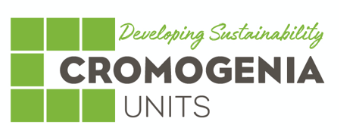Cromogenia Units, in collaboration with the SOLSTICE project, is committed to textile sustainability. To this end, it has initiated an innovative development of rPolyols and rCoatings using monomers and oligomers obtained through an innovative and eco-efficient chemical recycling process of classified and selected post-consumer textiles, i.e., recycled textiles. This effort is part of a broader initiative to promote sustainable growth in the textile sector and represents a significant advance in textile waste management, recycling, and the circular economy.
Innovation and Sustainability in the Textile Industry
The SOLSTICE project was launched in Lyon on May 28, 2024, with the goal of supporting sustainable growth in the textile sector through several key strategies and initiatives:
- Increasing consumer awareness of textile sustainability.
- Improving recycling with new sorting methods.
- Ensuring traceability of raw materials using the Digital Product Passport.
- Providing data and guidelines to decision-makers.
Recycling, Circular Economy, and Textile Sustainability
The SOLSTICE consortium, led by Axel’One, an innovation platform in chemistry and environment in France, encompasses the entire value chain of textiles and plastics. With a duration of 42 months and a scope covering multiple countries in the European Union (EU), the project aims to advance circular economy and climate neutrality practices within the textile industry.

5R Strategy for Waste Prevention in the Textile Industry
SOLSTICE is based on a holistic and comprehensive approach that includes all stages of waste prevention, guided by a 5R strategy:
- Refuse/Reduce
- Reuse
- Repair
- Repurpose
- Recycle
These solutions will be tested and refined in demonstrations carried out in four European cities and regions: Grenoble (France), Berlin (Germany), Prato (Italy), and Catalonia (Spain). The aim is to provide a more environmentally sustainable alternative for the textile industry.
Cromogenia Units and its Role in SOLSTICE

Collaboration with companies and clusters along the textile value chain is very important in the mission of the SOLSTICE project. Through these partnerships, this initiative seeks to unlock specific business opportunities that accelerate the adoption of innovative solutions aligned with the circular economy.
As part of a consortium of 24 partners working on the project, Cromogenia Units plays a crucial role in developing innovative products such as rPolyols and rCoatings. Using monomers and oligomers obtained from an advanced eco-efficient chemical recycling process, the company is at the forefront of transforming post-consumer textile waste into valuable and sustainable products.
This method is not only innovative but also efficient, sustainable, and environmentally friendly, standing out as a key solution for textile waste management. Thus, Cromogenia Units is working towards a more sustainable and environmentally friendly textile industry.
Benefits for the Textile Industry
The implementation of these innovative products will enable the textile industry to become more sustainable by reducing dependence on virgin raw materials, decreasing the environmental impact associated with textile production, and promoting a circular economy in which textile materials are efficiently reused and recycled.
Other Textile Sustainability Projects by Cromogenia
Cromogenia Units has a long history of research and development of products and processes that advocate for textile sustainability. It offers a wide range of products for more environmentally friendly textile printing. This new range includes high-performance binders and thickeners, as well as technologically advanced fixatives free from toxic or controlled substances.
Cromogenia Units also has a sustainable BIO textile range, in addition to developing and certifying its BIO products in the textile chemical sector. For example, with the 100% bio-based blocker for isocyanate-based crosslinkers (formaldehyde-free). Furthermore, it has worked on obtaining BIO versions of its water-based polymers, both in the range of polyurethane dispersions and acrylic emulsions.
4o
